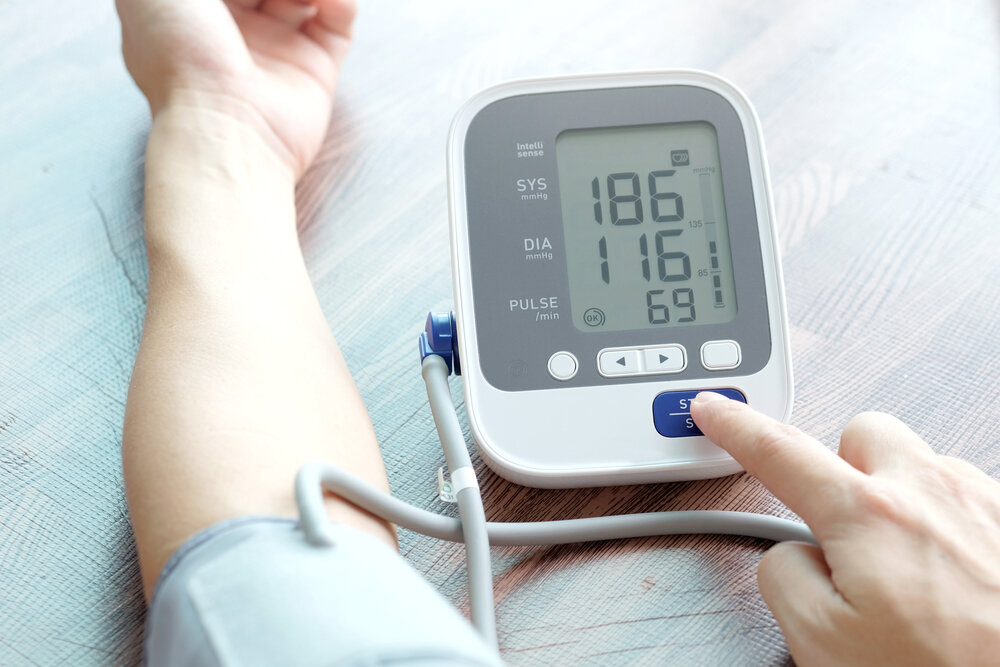High blood pressure: new findings demand rethink
Globally 1.3 billion people (Ref. 1) suffer from hypertension. High blood pressure forces the heart to work harder - and can damage kidneys and eyes. And when blood vessels in the brain are affected - it can even lead to vascular dementia.
In Australia it is estimated at 1 in 5 women… and 1 in 4 men. Okay, so we are fairly good at estimating the numbers . . . but not so good at answering why we have it.
Doctors will quote ‘risk factors’: not enough exercise, a ‘poor’ diet - or genetic predisposition. But these seem vague and unsatisfying for the patient. Unfortunately doctors don’t really know the root cause of hypertension.
Doctors are trained to treat high blood pressure - not explain it.
But we are focussed on why it happens . . . what is the cause?
And . . . if we found the cause - could we reverse it?
New discoveries are suggesting, yes this is possible - and that we urgently need a radical rethink of hypertension.
Food toxins are now implicated
Scientists (Ref. 2, 3) have now linked food toxins (caseins, phytates, gliadins and others acting in various combinations) to the sticky arterial build-up that leads to hypertension. But what exactly happens in our blood vessels?
We have all heard of cholesterol. There are ‘good’ and ‘bad’ types.
But new findings suggest - the problem is not just about eating cholesterol-laden foods. It’s about eating things which set off an immune response that calls out cholesterol in the body. Let me explain.
What happens?
Imagine one of your arteries pumping blood around your body. But one day something arrives - that is not recognised by your immune system. Toxins are ‘foreign’ - meaning the body is unable to deal with them, (that’s why they poison us).
Amongst other mischief - these toxic molecules (often proteins) tear holes in the lining of the artery wall.
This is a major alert signal to your immune system. It responds by quickly dispatching a repair team to patch up the hole. A plug of sticky stuff - cholesterol - is sent to the damage site - and applied to the break . . . In the process - the artery becomes a little narrower … partially blocking blood flow.
A brilliant repair response of the human immune system - as it tries to protect us from the toxin’s damage.
Clogged artery
Of course this doesn’t happen just once. Because we eat these food toxins all the time . . . it happens millions of times. Soon the cholesterol build-up in the arteries is getting serious.
It not only raises blood pressure putting kidneys and eyesight at risk - it increases the risk of blood clots forming. These can cause stroke.
Why weren’t you told about food toxins?
Fair question! Scientists publishing in medical journals have been telling us for years. Here at the Food Intolerance Institute … we have been reading about it since the 1990s. But unless published findings are embraced by the medical profession - they never make it to the ears of consumers . . . unfortunately!
With no warnings from food manufacturers, doctors or dieticians - we swallow food toxins at every meal - and every snack - every single day of our lives. By the time we reach our forties and fifties - millions of us have clogged arteries - and high blood pressure - and are on the path to a diagnosis.
Many are already diagnosed with hypertension - but others are completely unaware. So consequences like stroke or heart attack strike ‘out of the blue’.
Even though Jennifer eats a ‘healthy’ diet and exercises three times a week - she has high blood pressure.
Daily medication gives her diarrhea and a constant cough. But moving to a low-toxin diet would reduce the food toxins that cause hypertension.
Doctors usually prescribe medication to lower blood pressure . . . while the patient receives no definitive explanation of why it happens. Because doctors are trained to turn straight to treatments - not look into causes.
While they advise us of ‘risk factors’ - no mention is made of the food toxins which scientists now confirm as the root causes. So people keep eating them.
So the dreadful risk of stroke, heart attack and other emergencies loom constantly in the background. And this is why loved ones, friends and colleagues are caught out by disease.
Here at foodintol® LoTox we have embraced the knowledge. We understand that most chronic diseases are the consequence of slow-burn poisoning - most frequently from toxins carried by common staple foods.
But this still begs the question: now that the scientists have shown food toxins are implicated in high blood pressure - why are doctors not advising us to avoid high toxin foods?
Understanding the why gives us more control over stopping, reversing and preventing ‘incurable’ diseases.
For all these reasons we recommend a low toxin diet.
Know the risks
SELF-ASSESS TEST: Answering a few questions now could make all the difference.





